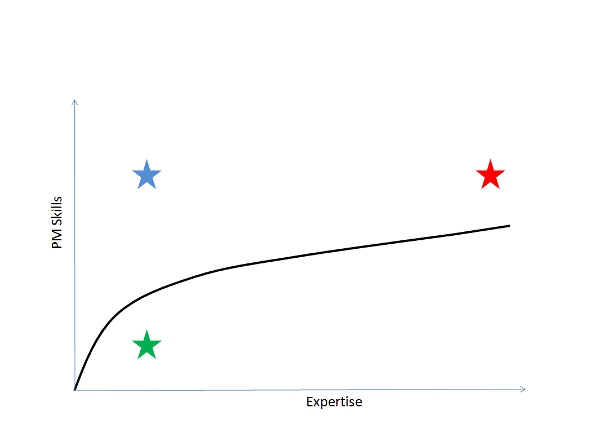Program Managers own the list, probably not anything on the list, but the list itself. Owning means to make sure the items on the list got checked. Every now and then, they go back to the beginning and check them again. Rinse, lather, repeat. All good program managers organize their list hierarchically and gradually delegate some to others. But make no mistake, THE program manager owns THE list.
Program managers must have 4 fundamental skills: sociable personality, planning, communication, and organization. There are various programs — PMP, Six Sigmas, Scrum Master, etc. — to prove the existence, or the mastery, of these skills. However, the lack of those certificates does not indicate the absence of those skills.
With these fundamental skills, a program manager can proceed to acquire some domain expertise: software, procurement, brand management, operation, etc. It takes years, if not decades, to acquire these domain expertise.
Those fundamental skills gradually saturate: after a while, a PM only get slightly better with more years of expertise. In contrast, the domain expertise goes very far, frequently as long as a lifetime. The more effort one poured in, the better one becomes. But switching expertise is next to impossible. This is similar to sport or music. An excellent violinist or sprinter would also be a good general musician or athlete, but can hardly compete with an average pianist or swimmer at piano or swimming. For this reason, it is of critical importance to choose the right domain to study.

It is ideal that you ended up as the red star in this chart. At that position, you have excellent PM skills and even more impressive domain expertise. Imagine, after achieving that status, that you choose to switch to another domain. What you will end up is where the blue star is. You have lots of PM experience, but a relative novice in the new domain. (It’s like Michael Jordan trying to play baseball.) At that moment, if you face the competition of someone like the green star, an inexperienced PM with equally undeveloped domain expertise, which one will win?
Well, it depends. Is it easier for an experienced PM to acquire the domain expertise or for the young person to acquire both? Then the brutal truth of cost comes into play. How much does each cost to the employer?
Advice. Don’t end up as at the blue star position.
